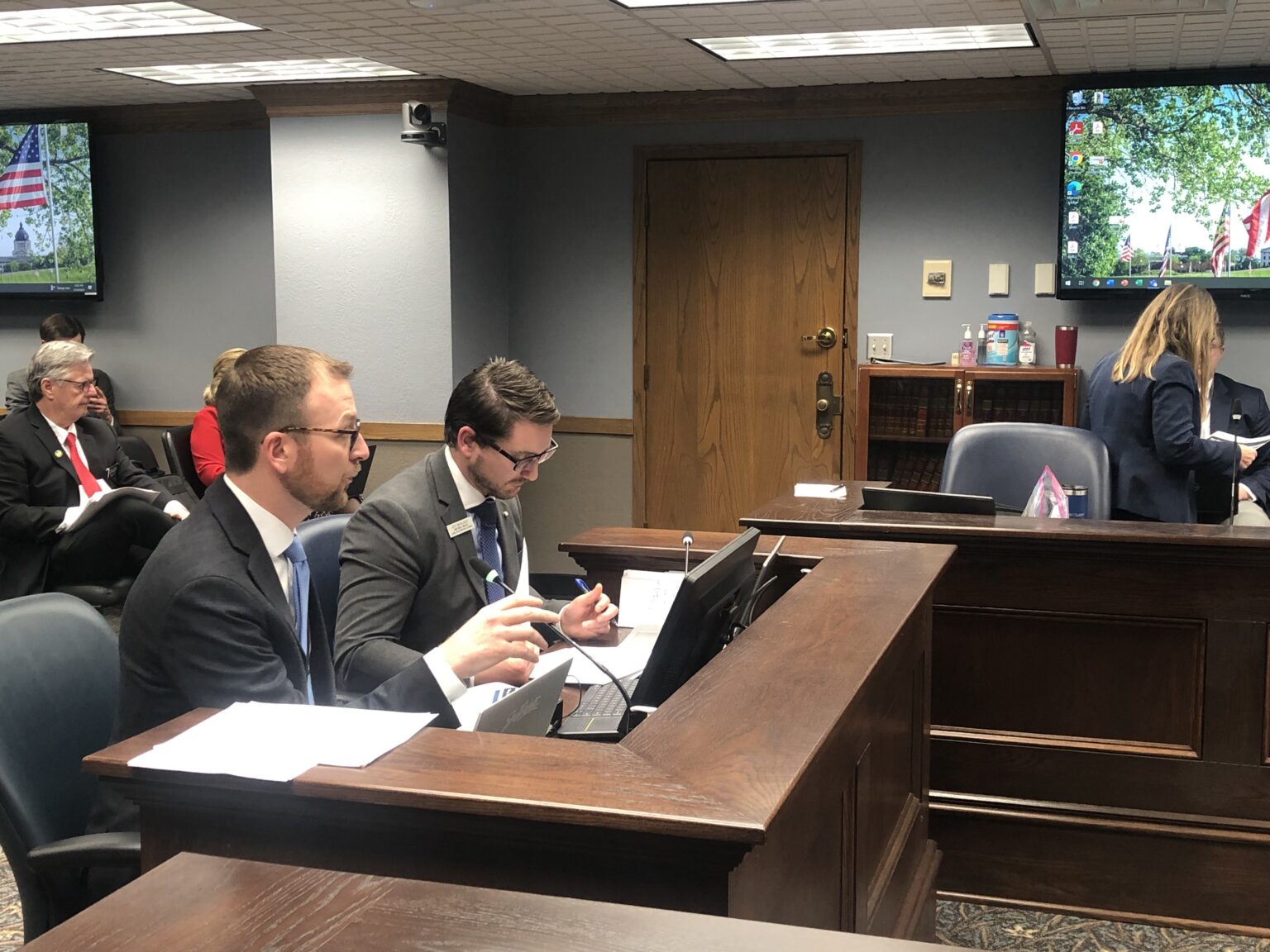
Makenzie Huber/South Dakota Searchlight
South Dakota is on track to see negative sales tax revenue growth for the current fiscal year.
As the largest source of revenue for state government, the trend is concerning for lawmakers heading into the 2025 legislative session and beyond, fiscal experts told lawmakers on the Joint Committee on Appropriations Thursday in Pierre.
Sales tax collections so far this fiscal year are down nearly 4% compared to the same time last year, a difference of about $19 million. If that keeps up, it would be the only time collections have declined in the last 14 years except for last year, when a slight dip was attributed to the reduction of the state sales tax rate from 4.5% to 4.2%.
The state’s total revenue collection July through October fell over $41 million compared with the same period last year.
“If you look at the path we’re on, it does not look good,” said Jeff Mehlhaff, the Legislative Research Council’s deputy director and chief fiscal analyst.

Mehlhaff and Derek Johnson, state economist with the governor’s Bureau of Finance and Management, cited factors including lower consumer spending due to inflation and decreasing farm incomes.
If the trend continues, Mehlhaff said, South Dakota will fall $78.2 million short of projections lawmakers adopted last legislative session for sales tax revenue.
But Mehlhaff and Johnson told lawmakers the state could replace the lost sales tax revenue with other sources, including large remittances in unclaimed property.
“I still think the target can be achieved,” Mehlhaff said. “Given the extra unclaimed property, it’s going to be close to the target overall even with negative sales tax.”
Unclaimed property is abandoned or forgotten money from bank accounts, stocks, life insurance payouts, uncashed checks and the contents of safe deposit boxes. The holder of the money or items, such as a bank, tries to find the owners. After three years of dormancy, the property reverts to the state.
Gov. Kristi Noem will present her fiscal year 2025 budget address on Dec. 3, and the committee will adjust revenue projections in February.
Inflation impacts consumer spending
South Dakota raked in revenue over the last two years, buoyed by federal stimulus funding from the COVID-19 pandemic. But revenue growth slowed this summer.
In July, the beginning of fiscal year 2025, sales tax revenue dropped 6% compared to 2024. Four months into the 2025 fiscal year, sales tax revenue decreased 1.7% year-to-date compared to 2024.
South Dakota is seeing a “huge” reduction in consumer spending, according to Johnson.
“Prolonged, increased inflation and interest rates are weighing on the consumer, especially in more discretionary spending areas,” Johnson said.
He added that contractor’s excise tax, the state’s second largest source of revenue, flattened out “as we expected.” The revenue source is down from the legislative adoption by $5.8 million, or 6.7%. That’s down 3.1% year-over-year.
“It’s still a strong number,” Johnson said.
The state saw significant growth in construction during the pandemic due to an increased demand for housing and an influx in federal funds to meet the demand. The state expected the revenue source to decrease after federal funding made its way through the economy.
Farm income impact
Sales tax is losing the most ground in retail trade, Mehlhaff told lawmakers. Farm machinery, especially, is experiencing a large decline along with building materials and garden supplies, while online sales are growing.
Four months into fiscal year 2025, tax revenue derived from farm equipment sales decreased 20.2% compared to this time last year.
Sales tax revenue mirrors personal income growth in the state. The state’s personal income growth peaked in 2021 at over 14% growth. Current personal income growth stands at just under 4%.
Farm income in South Dakota peaked at $4.4 billion in 2022 due to rising demand and commodity prices. Since then, prices decreased and overall farm income fell to $3.8 billion in 2023. In 2024, overall farm income in South Dakota stands around $2.9 billion.
Farm income is volatile, and some South Dakotans worry impending tariff policies from the incoming Trump administration will worsen the situation. Rep. Lance Koth, R-Mitchell, is a retired banker and told lawmakers he is worried the policy could lead to “another very troublesome time.”
“We’ll see in the next year or so, or until this gets sorted out, that this number is going to drop pretty dramatically,” Koth said, referring to farm income.
